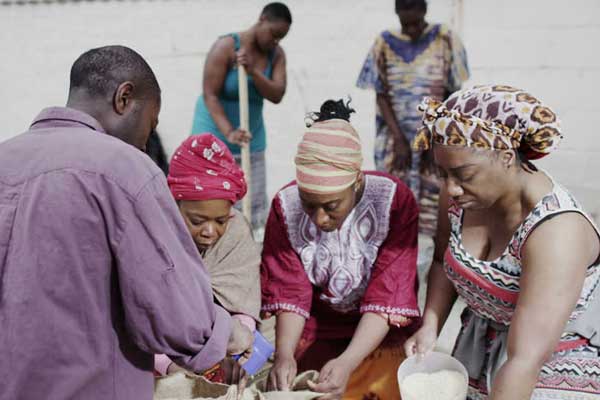We are made to work with God for a better world

A family working together. Photo / Stock Images
What you need to know:
- In his book, The Theology of Work in the New Economy, Robert Dickie discloses, what he calls, two distorted views of work: the “poverty gospel” and the “prosperity gospel”. They focus on what we earn and what we own rather than for whom we work and why we work.
Al-Hajj Bulaimu Muwanga Kibirige, aka BMK, has been eulogised as a self-made homegrown entrepreneur who rose from grass to grace, after dropping out of school. He always credited God for his achievements. In him, we recognise a legacy of striving to work with God, for a better world.
In his book, The Theology of Work in the New Economy, Robert Dickie discloses, what he calls, two distorted views of work: the “poverty gospel” and the “prosperity gospel”. They focus on what we earn and what we own rather than for whom we work and why we work.
Christians are taught that God loves us unconditionally and that we owe Him a life of excellent service. We were made to be co-labourers with God in tending His creation. Understanding how God views our work and the stewardship of resources entrusted to us is a daily concern.
The concept of work is often misunderstood as a punishment, in context of original sin: “In the sweat of your face you shall eat bread, till you return to the ground” (Genesis 3:19).
Capitalists and socialists consider work in terms of production, marketing and consumption, rather than an activity in its own right. This error also accounts for the “wealth-for-all” lie, engineered by politicians and multinationals, and fuelled by handouts.
Genesis 1:1, reveals that work is of divine origin: “In the beginning God created the heavens and the earth”. God was the first employer: “God said, ‘Let us make man in our own image, in our likeness, and let them rule over the fish of the sea and the birds of the air, over the livestock, over all the creatures that move along the ground’” (Genesis 1:26). Furthermore:
“The Lord God took the man and put him in the Garden of Eden to work it and take care of it” (Genesis 2:15). Jesus often illustrated his teachings with agriculture, fishing, construction and other enterprises.
We are all called to be faithful in the execution of our God-given duties. The duties will be different, depending on the need and our capacity. We are to use our life, time, and talents to build His kingdom; by following His principles to help others and serve the poor. In the Parable of the Talents, Christ reminds us that our stewardship will be evaluated by God.
‘Well done, good and faithful servant! You have been faithful with a few things; I will put you in charge of many things. Come and share in your master’s happiness!” (Matthew 25:23-30).
So, we need committed workers in every honourable walk of life. They should be mentoring the next generation on their journey as stewards whose work can shine as a light in a dark world.
Economic policies should provide work/employment opportunities for all. The employer-employee relationship must be built on honesty and moral conduct. An employee should provide the employer with services in exchange for remuneration. For that reason, misappropriation, misconduct and dishonesty are a disservice to God and society.
There is a special dignity and value to the work done in caring for the family. A family without work is particularly vulnerable to difficulties, tensions and problems. The family of Nazareth could sustain itself (Matthew 13:55). Today, it is important to put into consideration all those workers who are heavily impacted by the Covid-19 pandemic and are experiencing great distress.
When work is well appreciated, and when we do it to the best of our ability, we worship, honour and glorify God (1 Corinthians 10:21). Imbued with this proper theology of work, we realise the need for prayer to God: before, during and after work (Psalm 127:1, John 15:5).





